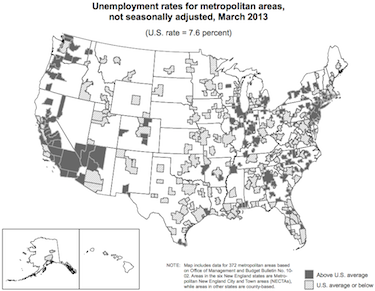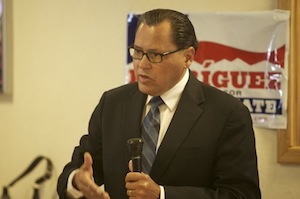A recent blog in the New York Times is only one indicator that the last five years have been totally devastating on the skilled workforce in this country. The unwritten, but widely known, 20% plus unemployment in the construction sector is only the preface to what is to come.Many construction companies were not able to retain their skilled workers when the recession hit and construction stopped on a dime. Many of those workers moved from the east coast to more active markets in order to survive. A number of them took oil field jobs from Montana down to Texas where they could make a living for themselves and their families.Now that both the residential and commercial construction sectors are recovering, many firms are finding that their skilled workers have disappeared. The article in the New York Times also points out that even though construction has begun to recover, salaries are stuck at recession levels, further contributing to recruiting and hiring difficulties in their markets.
Reshaping the Construction Industry


Florida legislators have made a bold move in the battle against payroll fraud with the passing of Florida House Bill 217 titled “Money Services Businesses”. Aimed directly at the bandits who run check cashing stores to enable dishonest contractors to avoid paying workers’ compensation and payroll taxes, the bill is now on its way to Governor Rick Scott for his signature into law. The details of the bill were explained in a press release from the Florida Office of Financial Regulation (OFR).“The new legislation will require check cashers to log any checks cashed in excess of $1,000. In addition to the check amount, each business will be required to submit traceable information such as payor, payee, fee charged, type of identification presented and payee’s workers’ compensation insurance policy number, if the check was made out to a business. The bill also provides that multiple checks accepted from any one person in one day, which total $1,000 or more, must be aggregated and reported in the database.”Readers of Construction Citizen have already been informed about how these check cashing store / workers’ comp fraud schemes work, but here it is again. A dishonest contractor will submit a bid for a job using a company name which lists only a few employees – just enough to obtain a small workers’ compensation policy. The contractor will then take checks paid to that company by the general contractor to a check cashing store to cash them so that most of the workers can be paid in cash.
May 08, 2013


In an emotional and technically challenging effort, the American-flag-draped spire that will sit atop New York’s One World Trade Center was lifted up the side of the building. One World Trade Center was built near the site of the original World Trade Center buildings that were destroyed by terrorists on September 11, 2001.The spire, an antenna tower for the area, helps make the building the tallest in the United States at 1,776 feet. Hardened steelworkers in brown hard hats waited on the 104th floor for the crane operator to lift the spire so that it could be fitted onto its collar on top of the building. On the ground, construction workers, New Yorkers and the press watched the spire move slowly up the side of the building. The spire was built in Montreal and shipped 1,500-miles by barge.
May 07, 2013


Construction jobs, spending shrink in latest month but rise for year; metros vary widelyEditor’s note: Construction Citizen is proud to partner with AGC America to bring you AGC Chief Economist Ken Simonson's Data DIGest. Check back each week to get Ken's expert analysis of what's happening in our industry.View construction employment figures by state and rank.Nonfarm payroll employment increased by 165,000, seasonally adjusted, in April and 2,077,000 (1.6%) over 12 months, the Bureau of Labor Statistics reported today. The March gain, initially reported as a weak 88,000, was revised up to 138,000. The unemployment rate was 7.1%, not seasonally adjusted (7.5%, seasonally adjusted), down from 7.7% a year earlier. Construction employment dipped by 6,000 for the month, following 10 consecutive monthly increases, and totaled 5,790,000, seasonally adjusted, a gain of 154,000 (2.7%) over the past year. Total hours worked in construction increased by 3.0% over 12 months, implying that contractors are lengthening working hours and also hiring new workers.
May 07, 2013


After months of forward momentum, a proposed crackdown on misclassification of construction workers championed by both business and labor may have hit a serious snag.The bill by Representative John Davis, R-Houston, would create penalties for companies that are found to be intentionally misclassifying their workers. Despite the fact that it was passed unanimously by a committee, it has yet to be placed on the calendar for a vote by the full House of Representatives. Our sources in the capitol say members of the powerful House Calendars Committee are under pressure from home builders who testified against it to keep the bill off the House floor. Make no mistake: It is crunch time for passing bills in this legislative session.
May 06, 2013


On a commercial renovation job in Panama City, Florida, a Hispanic drywall construction worker was electrocuted when he came in contact with electrical wires projecting from a terminal box at the site where he was working.According to an article published in the Durability + Design Journal, “A Florida contractor must answer federal citations involving the electrocution of a Hispanic drywall worker, although the worker was paid in cash and the contractor denied knowing him.”In her statements to police at the scene, Nathalie Monroe, President of Monroe Drywall Construction, Inc. (MDC), denied hiring, or even knowing, the deceased worker. However, in subsequent testimony from other “drywallers” on the site, it was learned that MDC had hired the four men to hang, tape and finish the 338 boards on the remodel job and was paying them in cash. Monroe later admitted that she knew the deceased and had worked with him on other jobs.This is a classic case where even though the workers were employees, they were paid in cash by the subcontractor in order to avoid workers' compensation claims and taxes.
May 06, 2013


El Paso has become the second city in Texas where an employer has been arrested and indicted on charges of wage theft. The Texas Observer reports that El Paso is the only city in the state that has an active wage theft task force. It includes the police and sheriff's departments as well as the County Attorney and District Attorney's offices.From the Observer:“It’s huge because we’re finally treating the stealing of someone’s wages the same way we treat someone stealing from Target or Albertsons or [any] store,” says Jed Untereker, an attorney with Paso del Norte Civil Rights Project who represented the employee.
May 03, 2013


Recently, the United States Judicial Panel on Multidistrict Litigation centralized the six current class action suits to the Eastern District of Pennsylvania for further adjudication.According to the panel of Judges, “On the basis of the papers filed and the hearing session held, we find that these actions involve common questions of fact, and that centralization under Section 1407 in the Eastern District of Pennsylvania will serve the convenience of the parties and witnesses and promote the just and efficient conduct of this litigation.”The suits arose after the defendants, USG Corporation; United States Gypsum Company; L&W Supply Corporation; New NGC. Inc.; Spangler Companies, Inc.; CertainTeed Corporation; Georgia-Pacific LLC; American GypsumCompany LLC; LaFargeNorthAmerica, Inc.; TIN, Inc. d/b/a Temple Inland, Inc.; and PABCO Building Products LLC.
May 02, 2013


A fight between some construction companies and Texas bankers may have to wait until the next legislative session to be resolved. That was the tone of a hearing this week in the Texas Senate where bankers made the case that even though it sounds like a simple concept, it is a tough issue when you “get into the weeds” of it.Construction trade groups, chiefly the Texas Construction Association, support a bill by Senator Bob Deuell, R-Greenville, which would require lenders to give notice when funding is being pulled from a project. Deuell said that he felt all the stakeholders had negotiated in good faith to try to craft legislation that solves the problem. Testimony was offered Tuesday morning to the effect that when a lender decides there will be no more disbursement of funds on a project, they are not required to notify any of the companies doing the work. Sometimes weeks or months go by before the construction companies on a project realize they are not going to be paid for that work.Rich Thomas, a construction lawyer in Dallas, testified before the Senate Business and Commerce Committee stating, "The problem is in the rare situation whenever there's a default.” He said in the event a lender makes the decision to stop funding a project, construction companies get the short end of the stick. "When the lender does not tell the general contractor, that's wrong," he said.
May 01, 2013


The bill still has a long way to go, but the proposed crackdown on the intentional misclassification of construction workers in Texas passed a milestone last week when it was voted unanimously out of a House Committee.On a 7-0 vote, HB 1925 was sent to the full Texas House. Before it can get to the House floor for a vote, however, it has to be put on the House calendar by the Calendars Committee. This is a step in the process where many bills can die. With time running short in the legislative session, the Calendars Committee has the power to keep legislation, good or bad, from getting to the point where the representatives of the people get to decide the issue. I'm told that Calendars Committee Chairman Todd Hunter may be coming under pressure from opponents of the crackdown, including the largest homebuilders:
April 30, 2013



.jpeg?itok=6uFZXEBH)





.jpeg?itok=4Vi_1nJG)











